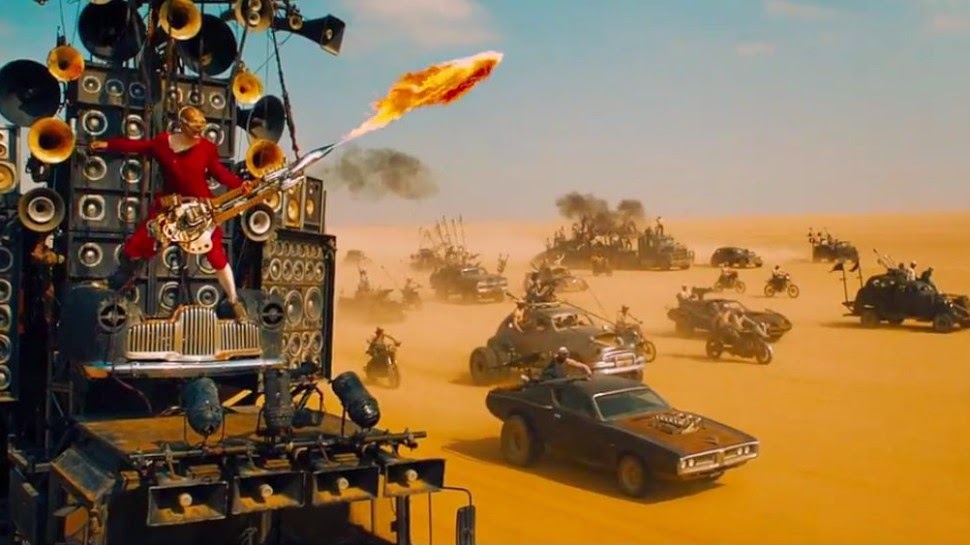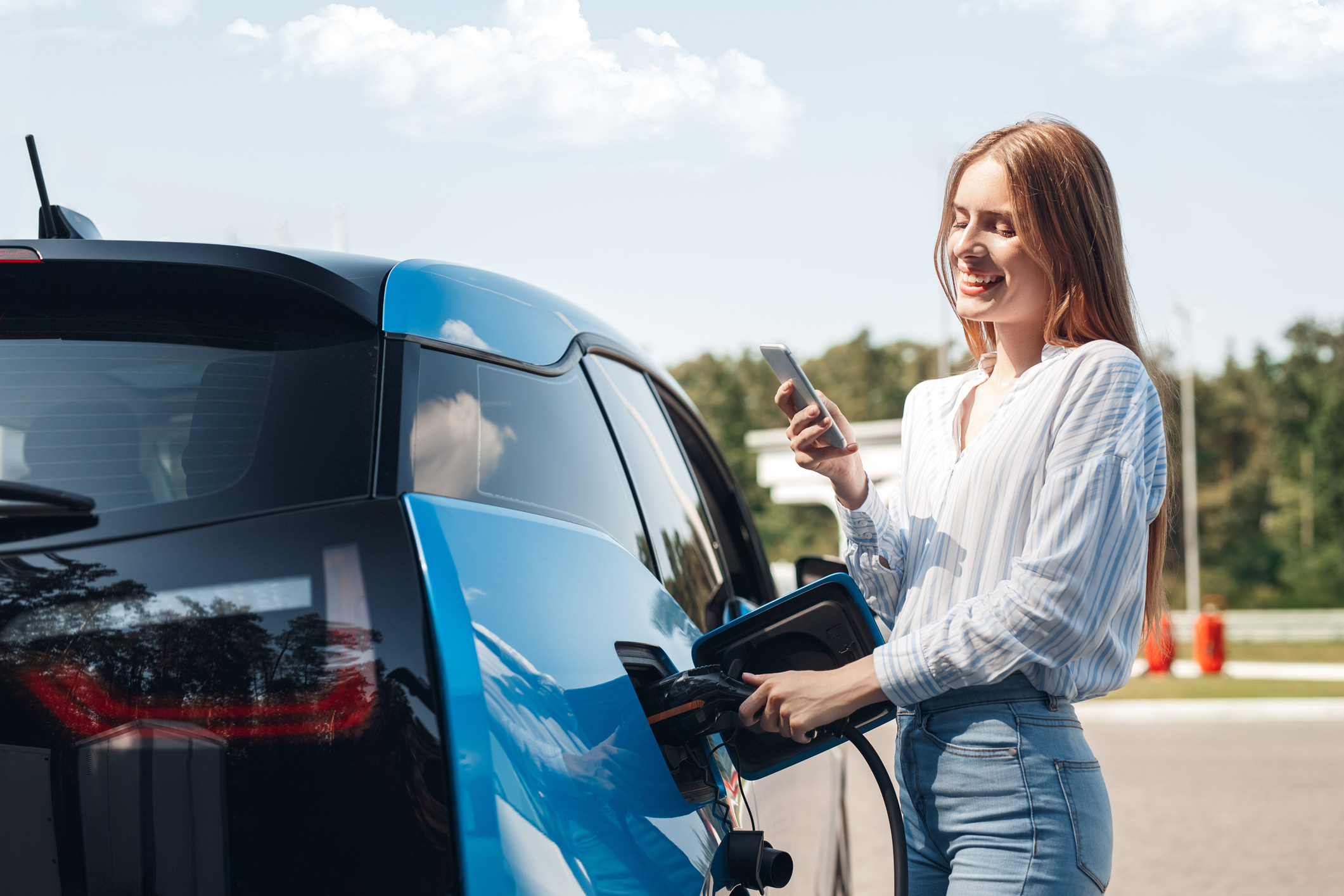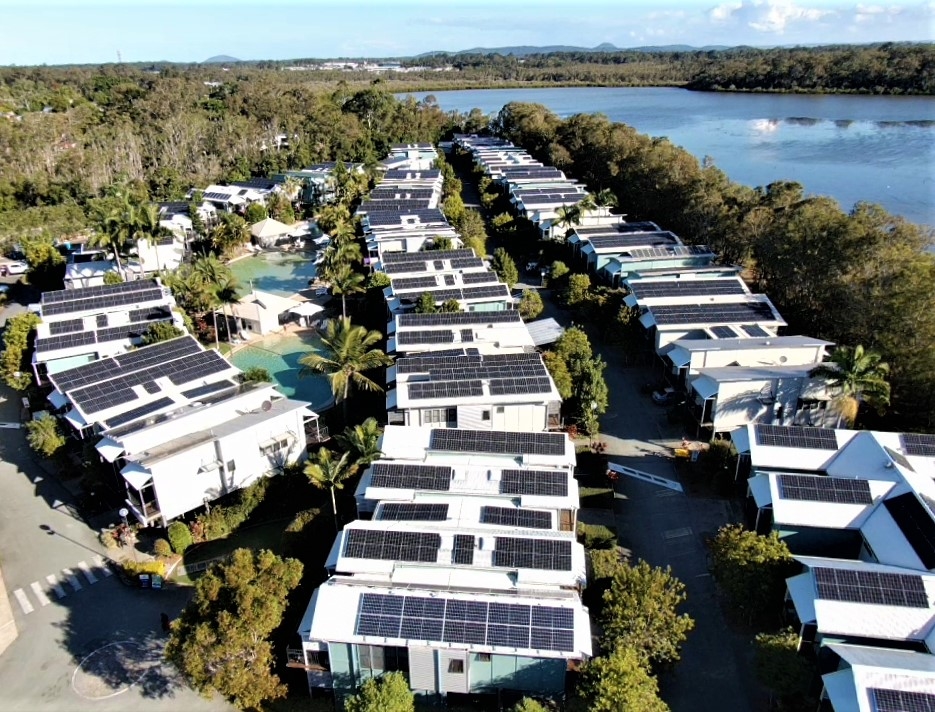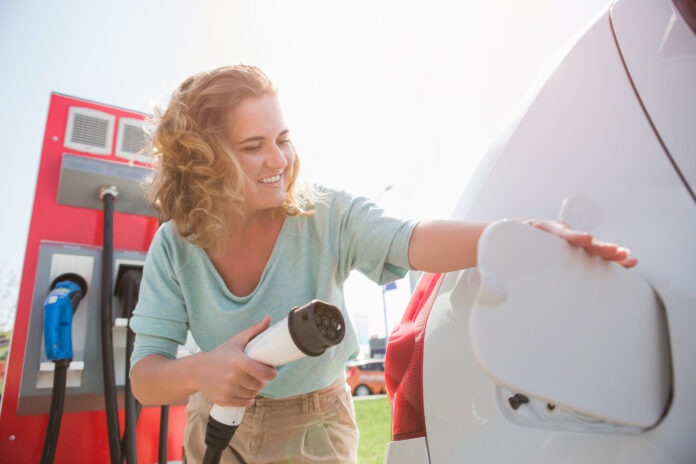Electric vehicles will play a greater role than most people imagine in driving Australia towards 100 per cent renewable energy powering the entire main grid in the future.
That’s the belief of Sunshine Coast electrical contractor Bob Johnson, who has spent an increasing number of hours in the past 18 months installing Tesla EV charging stations in private homes across the region.
The more-convenient, at-home plug-ins add to the Queensland Electric Super Highway network (including Maroochydore, Yandina, Palmview and Coochin Creek), connecting drivers to dozens of coastal and inland EV charging stations, including ultra-rapid charging sites.
Research shows the tide has turned in the popularity of EV and hybrid vehicles, with more consumers planning to ditch their petrol cars, and two million electric and hybrid vehicles expected to hit Australian roads over the next year.
A Finder survey of more than 1000 Australians found almost two-in-five vehicles purchased in the next 12 months could be low-emission cars, with an almost equal split between battery electric and hybrid models. The new research found 25 per cent of Australians planned to buy a car in the coming year, and 39 per cent of that group intended to choose low-emissions vehicles.
Mr Johnson is one of those people passionate about renewable energy – despite eyes glazing over whenever the topic comes up in conversation with others.
Do you have an opinion to share? Submit a Letter to the Editor at Sunshine Coast News via news@sunshinecoastnews.com.au. You must include your name and suburb.
That’s because he was involved in the first solar grid-tied systems installed on Coast rooftops in the 2000s.
Although a sceptic initially because of the expense of systems (about $8 a watt or $8000 a kW), he sees the value today because solar power in average households has dropped drastically to $1 a watt – thanks largely to government incentives and rebates.

The 1970s oil crisis was the wake-up call Australia and other Western countries needed to minimise our reliance on other nations for energy and avoid soaring fuel prices, forcing us to look to solar technology as a viable alternative.
No one wanted to live in the dystopian wasteland highlighted by the Mad Max films where people wage war on each other to secure the scarce fuel resources left on the planet.
And with regular unleaded petrol prices hitting $2.37 a litre in Southeast Queensland in September this year, on the back of last year’s record-breaking increases, the idea of electric vehicles and hybrids is looking more attractive by the day.
That’s even with a 30 per cent to 40 per cent premium over and above the average price of petrol cars.
Mr Johnson, owner of Industrial Marine Power, says that thinking outside the square and creating affordable storage is vital to making the most of our renewable energy. And EVs could become mini-storage systems in their own right.
“You’ve got a 400km range in the EV (per full charge),” he said.
“But most people only drive 20km a day. So, when you come home every night, you’ve got all this ‘juice’ stored in your car and all the technology is there to then use it in your house.
“Why couldn’t you have your car as your energy storage system?

“My dream world is that you have a battery in your house that can keep all the lights and everything going at night-time and it’s charging up through your solar panels during the day. Then when you come home at night, if you’ve got excess energy in your car, you can use the energy of your car that you’re not needing.
“It’s just that cost of the batteries (at the moment).”
Mr Johnson believes that just as solar panels drastically reduced in price, the cost of batteries also will fall in the not-too-distant future.
Want more free local news? Follow Sunshine Coast News on Facebook, LinkedIn and Instagram.
And EVs plus rooftop solar plus affordable battery storage can also equal wider scope for renewable energy use across whole suburbs through “smart grids”.
Standards Australia defines a smart grid as “an electricity system incorporating electricity and communications networks, which can intelligently integrate the actions of parties connected to it”.
And even unit dwellers without rooftops of solar panels can benefit.
A smart grid would allow residents to “tap in” to excess solar power off their neighbours’ roofs, stored in large suburban batteries.

“You don’t just have a little meter on your house spinning: it would do smart things,” Mr Johnson said.
“You can get on to your energy retailer and you can say: ‘I’ll buy power when it’s cheap – even if it’s only 20 minutes. If the grid’s got excess power, I’m prepared to take it at ‘x’ price.’
“All that technology is there. But our grids are very dumb.
“Our grid network hasn’t changed for 80 years.
“So, there’s the three buzzwords: smart grids, rooftop solar and battery storage. Those three things together will get us to 100 per cent renewable.
“You can have storage in your car, storage in your garage and then suburbs can have storage in these big batteries. That’s what I see as the future.
“Then the days of the oil crisis won’t come to pass because you’ve got this battery storage technology.”
A report on the Renew Economy website said Australia’s installed renewable energy capacity could have generated more than enough electricity to power the entire main grid for a brief time over the October long weekend.





